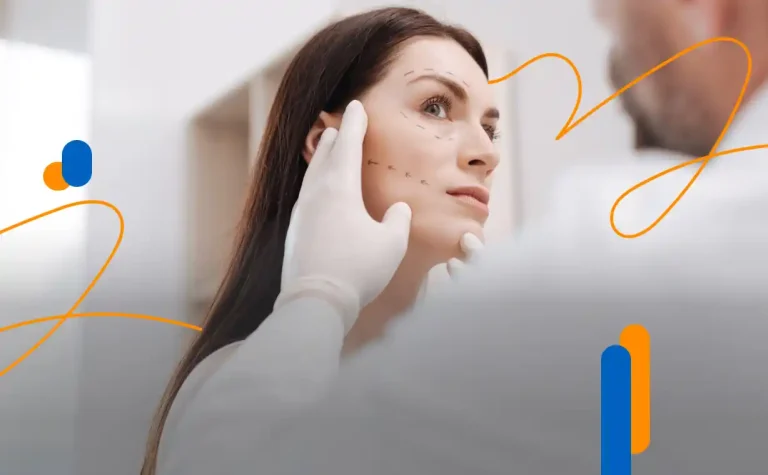Do you work as administrative staff in a medical center and want to streamline daily processes? As a healthcare professional, are you looking for a digital tool that will add quality to your patients’ experience? Whether you are a doctor, dentist, pharmacist, veterinarian or laboratory technician, the electronic signature is the technological solution you need.
Although the electronic signature in the healthcare sector has benefits for professionals and patients, the context of the digital transformation of the sector requires attention to be paid to a series of challenges to be faced. But where there are challenges, there are also great opportunities. If they want to streamline their services and, at the same time, improve the protection and security of their patients, healthcare professionals must take advantage of both cards.
3 challenges of electronic signatures for doctors and patients
In today’s digital age, electronic signatures have become an essential tool for many industries, including the healthcare sector. Its adoption promises to streamline processes, improve efficiency and provide greater convenience for both healthcare professionals and patients. However, its implementation is not without its challenges.
In the following section, we will explore these challenges in detail, both from a legal and operational point of view:
Insecurities about its reliability and safety.
Does the electronic signature have the same validity as the handwritten one, is it safe to manage patient documents digitally? When we talk about managing medical documentation such as confidentiality documents or informed consents using this tool, doubts often arise as mentioned above about whether we can trust it.
Users, healthcare professionals… relax! This technological tool is safe and risk-free. At the European level, it is governed by the DAS Regulation, which “creates a European internal market for trust services by ensuring that they work across borders”. The aforementioned regulation also guarantees that documents (including medical documents) with digital signatures have the same validity and legal guarantee as their traditional paper counterparts.

The digital divide, a challenge for the accessibility of older patients
During the pandemic, the online world made its way through QR code vaccination passports, electronic banking services…a world that, by the looks of it, is going to stay that way. And while a large percentage of the population has gone digital, there is still a big gap between older and younger generations. In fact, in many cases it has deepened.
The reasons for this situation may vary. However, the main one is that older people often have neither the tools nor the knowledge to do business online.
It is a major global challenge, but solutions are constantly being developed. At the European level, ‘ the Decade of Healthy Ageing project seeks to improve the lives of the elderly, their families and the communities in which they live. Collaborating with governments, international organizations, academic institutions, professionals, the media and the private sector, it focuses its efforts on aspects such as digital empowerment.
In addition, more and more applications are being developed whose usability is accessible to all users, regardless of their age. Nowadays, most applications or tools have an optimal design for its usability, tutorials to learn how to use it or an initial introduction with one of the commercials.

Privacy in the protection of personal data.
The confidentiality of healthcare data is the fundamental basis of data protection law, supported by the General Data Protection Regulation, the LOPDGDD (Organic Law on Data Protection and Guarantee of Digital Rights) and the Law on Patient Autonomy. The aforementioned law establishes that the person responsible for the processing of personal data from the patient’s medical history is the healthcare center in the case of public entities, and the physician in the case of practicing as an individual professional.
In an industry where safeguarding personal data is a daily task, it is essential to have the best tools to avoid privacy risks, loss or physical destruction of the document. Although there is a perception that electronic signatures for doctors or patients may entail privacy risks if implemented incorrectly, the truth is that it is the safest alternative because it has stricter authentication controls.
Opportunities for clinics and health centers.
Medicine is advancing by leaps and bounds, and emerging opportunities with great potential for application are emerging every day. Many of these opportunities are promising for the sector, not only for its users (whether healthcare professionals or patients), but also for the investment of resources.
Therefore, it is important to highlight some of the opportunities with the greatest capacity to generate an impact on the sector, our lives and that of future generations.
Health innovation.
We are all recipients of medical innovation. While new drugs and devices to treat diseases are a great example of innovation, it also encompasses the transformation of the current process and business model to meet current and future needs, preferences and expectations.
From the application of artificial intelligence and machine learning to precision medicine, there are many emerging technologies that can find their niche in industry innovation. In fact, that’s what they should do.
According to the report ‘‘Innovation in the health sector 2023’’, carried out by Lanzadera, healthcare innovation is:
“inevitable and necessary if we want to provide solutions to the new challenges that both medicine and users demand. New platforms, tools and artificial intelligence provide faster, more accurate and more efficient medicine for patients and healthcare professionals”.
Informe ‘Innovación en el sector de la salud 2023’, realizado por Lanzadera (2023).

Sustainability in medical processes
Due to demographic pressure and other challenges such as population aging, more and more resources are needed to ensure the provision of healthcare services. In a context where tools must be sought to address this dilemma, this digital solution may be the most efficient way to manage available resources.
Beyond having a positive impact on satisfaction and process management, this digital solution can make resource management more efficient, as it combines health applications and personal data records. It has to be designed with the patient at the center, where digital tools are designed to offer the widest range of options based on their preferences and needs. In this way, thanks to digital health, better quality care will be offered, facilitating the work of professionals with the greatest possible budgetary efficiency.
Viafirma is the solution you are looking for in the healthcare sector.
As a healthcare professional, do you want to take advantage of the trends and innovate in the sector? Viafirma can offer you management systems that will be a plus in your services and will make them more agile, from a perspective:
- Legal
- Efficient
- Safe and private




